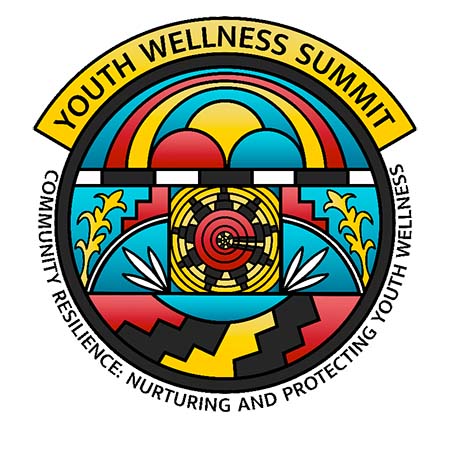Last week, Native youth from New Mexico’s 23 Native nations, tribes, and pueblos provided ideas for future government initiatives and received strategies to improve their mental health at the virtual 2021 Indigenous Youth Wellness Summit.

Youth participants shared successful ways in which their tribal governments responded to the pandemic, the need to increase awareness of existing mental health resources, and their experiences during the pandemic, according to Kalee Salazar, the Special Projects Coordinator of the New Mexico Indian Affairs Department (NMIAD).
Want more Native News? Get the free daily newsletter today.
“What did you learn about yourself during Covid? What did you learn about your community during Covid? And a lot of the responses were focused around that,” Salazar said. “What happens in our communities, if it happens to another family, is happening to all of us.”
The summit was developed in response to “numerous calls by tribal leadership and youth to improve access to behavioral and mental health services and resources” that moved online during the pandemic, according to NMIAD. These calls are part of a broader conviction held by Native youth about the need for action on mental health in their communities. The 2020 Indigenous Futures Survey found that nearly 90 percent of 1,086 Native 18-24 year-olds from 326 tribal nations believe that mental health is an extremely urgent or urgent priority for Indigenous communities, a report from the Center for Native American Youth said.
“But in my opinion, we aren’t doing enough that’s concentric to communities, and community values and interventions and supports that are meaningful and culturally appropriate where they need to be,” New Mexico Gov. Lujan Grisham said in her remarks during the opening session of the summit.
Insights gathered from breakout sessions during the summit will be compiled into a report for tribal leadership and Grisham, according to Salazar. Salazar said that the Indian Affairs Department’s Indigenous Youth Council (IYC), a group of young Native leaders from communities across the state, will be “taking the lead” in helping establish the report’s recommendations. The department said the other summit partners are NMIAD itself and suicide prevention clearinghouse Honoring Native Life (HNL).
“I look forward to being bossed around by each and every one of you moving forward,” Grisham told attendees of the summit. “And I don’t say that flippantly, I mean it. We need you, and you’ve responded to that call to action. So you have my commitment that your recommendations will not fall on deaf ears, that they will be engaged in an active-oriented set of shifts and investments in new policies that really will make a difference for future generations.”
Topics on the summit’s agenda included nurturing health and resiliency through movement and the body, self-care and mental wellness, skill building, and healthy relationships and boundaries, as well as the Gathering of Native Americans model. Summit participants received a package of resources that included coloring books donated by Indigenous artist Ricardo Caté, a drawstring bag printed with crisis hotline numbers, and sage and cedar bundles, according to Salazar and IYC member Kaylee Wood. Salazar said that the items represent the physical, mental, and spiritual dimensions of health.
“The agenda and the people we invited to present (at the summit) is really based on the information and what we were hearing from the Indigenous Youth Council about some of the issues around mental and behavioral health that are impacting them, their friends, their family, and their communities,” said Teresa Gomez, the program manager for Honoring Native Life.
After conducting two listening sessions with Native youth, NMIAD said it first created the IYC in February by tapping young Native leaders from across the state to join. Many are high school, undergraduate, or graduate students who are also involved with youth outreach organizations, a youth committee for Native government, and/or advocacy for Indigenous people. The council provides an opportunity for young Native leaders to work with NMIAD and coordinate and collaborate their efforts.
“With the Indigenous Youth Council, it really opened opportunities for the Navajo Nation Youth Advisory Council to explore some of these issues more,” said Tristan Black (Diné), a member of the IYC and the Navajo Youth Advisory Council. “I think as time moves on, we’re going to be able to address some of those issues in our own tribe, in our own youth councils, and it’s just like a web. It just expands more to where that message is not only being shared at this summit, but it’s being noticed in our own tribes, in our own youth councils.”
Salazar said that the summit reminded state and tribal leadership of the need to provide telehealth services for tribes in remote areas. Black said the IYC has given its members the opportunity to express their voice and help youth find a support system.
“(Last year) was a real hardship for a lot of Indigenous families, so I think with 2021 now, we’re starting to heal, we’re starting to overcome a lot of those hardships, and we’re doing it through our idea of working together as a family,” Black said. “And if we’re able to do that, we’re able to overcome a lot of challenges ahead of us.”
More Stories Like This
New Mexico Will Investigate Forced Sterilization of Native American WomenUSDA Expands Aid for Lost Farming Revenue Due to 2025 Policies
Two Feathers Native American Family Services Wins 2026 Irvine Leadership Award
Bill Would Give Federal Marshals Authority to Help Tribes Find Missing Children
Indian Health Service to Phase Out Mercury-Containing Dental Amalgam by 2027

